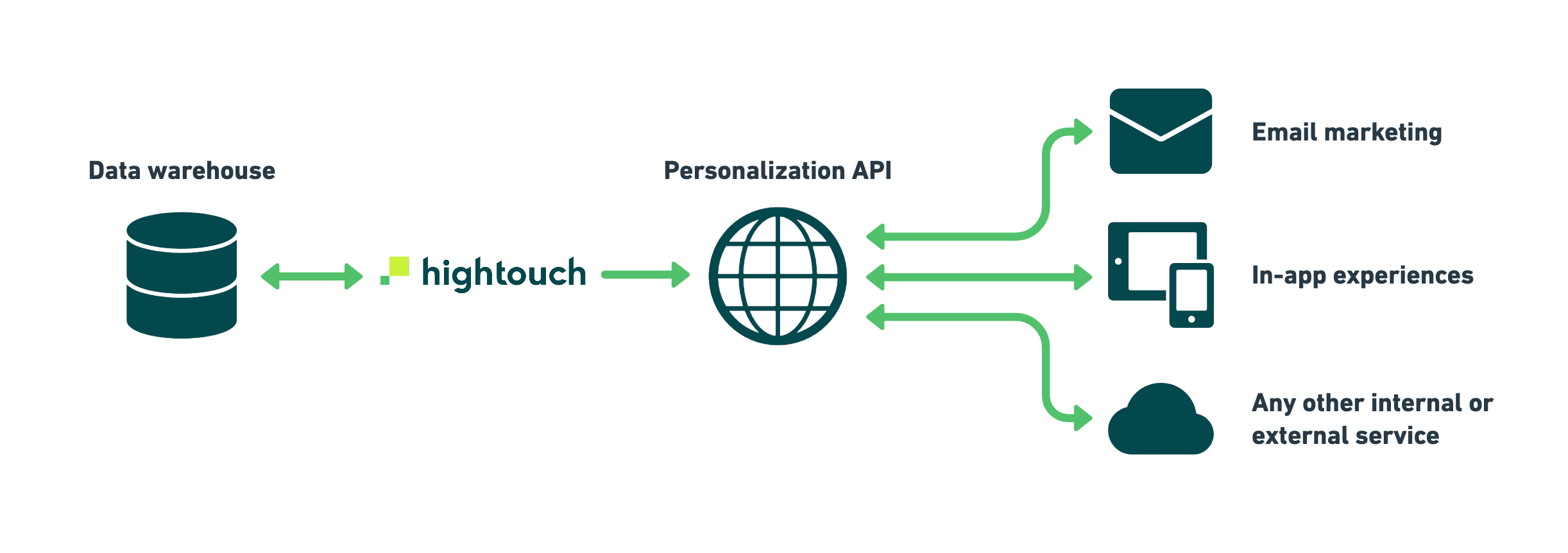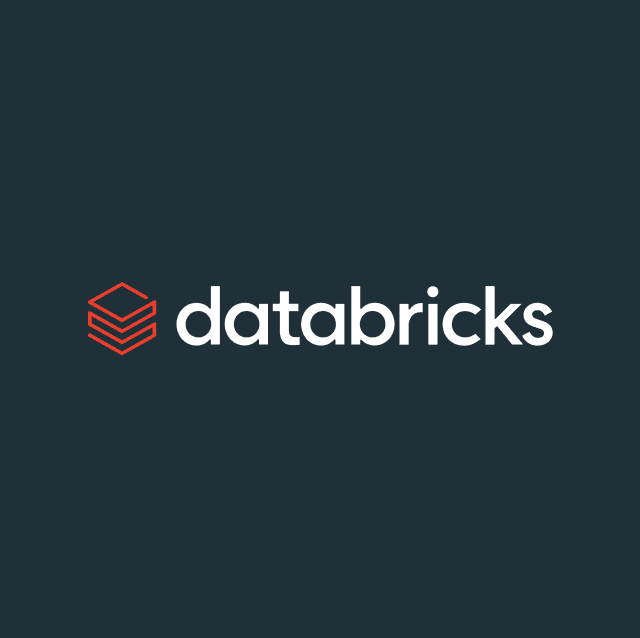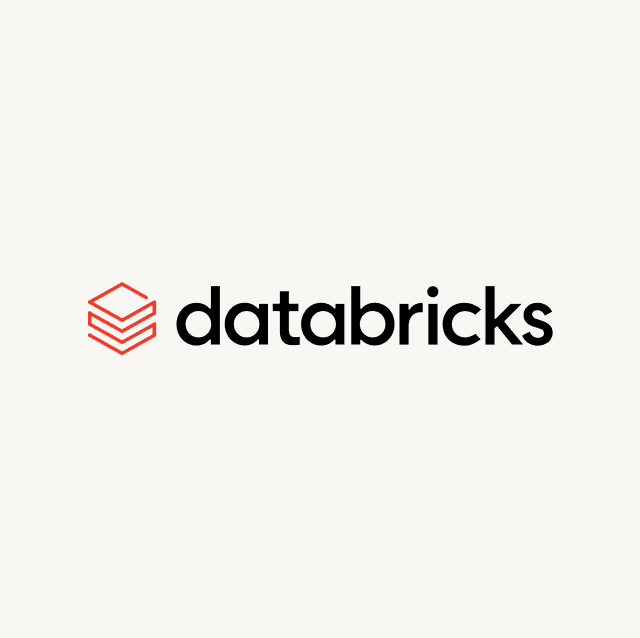Your data teams have a difficult job. Not only do they have to maintain how data is modeled and transformed in your warehouse, but they’re also responsible for the underlying infrastructure which houses that data, as well as fulfilling every ad-hoc request that comes in from various stakeholders.
In this blog post, you’ll learn how you can leverage the Hightouch Personalization API to give your internal stakeholders and business users access to the dbt models in your data warehouse so they can use them in real time.
Aligning Data Teams with Outcomes
For many companies, the sole value of data is directly linked to analytics use cases, which means most of the work from your data team inevitably goes unnoticed. Dashboards just build themselves, and CSVs just magically appear. In reality, the only time your data team gets noticed is when a dashboard breaks or your business team doesn’t have the data when they need it.
Your internal stakeholders want to know how the organization is performing so they can make high-level decisions to drive the needle forward.
- What do our most active users have in common?
- Which customers are at risk of churning?
- Where are users getting stuck in the onboarding flow?
- When are customers abandoning their shopping carts?
Additionally, your business teams have their own list of ad-hoc requests:
- Sales: I need fresh product usage data available in Salesforce.
- Marketing: I need a list of customers with X criteria for a new marketing campaign.
- Support: I need to know which customers are at risk of churning in Zendesk.
- Finance: I need to know which customers have the highest and lowest lifetime values.
Most data teams are so bogged down with requests that they have no time to think about how they can optimize and streamline the delivery of their data–and the team that should be focused on serving your other business units ends up fulfilling IT tickets.
Every business team is measured on their ability to drive revenue, but most data teams are measured on their output. This distinction is problematic because your dbt models are the backbone of your business. This is where all of your proprietary customer data lives. The problem is the data living in your dbt models is only accessible to your technical users who know how to write SQL in your data warehouse.
You’re business teams need and want self-serve access to the rich customer data living inside your dbt models, and this is exactly the problem the Hightouch Personalization API solves.
The Solution: Personalization API
The Hightouch Personalization API introduces a single-click way for your data engineers to serve their dbt models or warehouse tables as an API. The Personalization API works by storing a cache of your model in a distributed, low-latency database that automatically updates as the underlying data in your warehouse changes once your dbt jobs finish running.

At its core, this API introduces a real-time query layer where business teams can easily pull data into their operational tools when and where they need it, fully democratizing the data living in your dbt models and establishing a Composable CDP architecture on top of your existing data warehouse.
Architecturally, the Personalization API is built to handle up to one million requests per second with a 30-millisecond response time. The results of the cache are delivered over HTTP, which means the API can be queried directly from your SaaS tools, and your business teams can self-serve as needed.
Use Case Examples
While it’s relatively easy to see the problem that the Hightouch Personalize API solves, it’s important to understand how you can leverage the API in real-world scenarios.
Product Recommendations
Imagine you’re a streaming platform like Disney+ or Netflix, and you have a data science model to predict what movies your users are most likely to watch based on factors like viewing history, genre, ratings, age, etc. Recommending relevant and accurate content to users is critical to your success, but doing so is also very challenging because this data only exists in the warehouse. The Hightouch Personalization API allows you to perform a lookup on any column in your model and pull that data into your production database so you can deliver relevant recommendations tailored to customer preferences.
Personalized Marketing Campaigns
Pretend you’re a food delivery app like Uber Eats or GrubHub, and you need to send personalized messages and offers to your users based on their food preferences, ordering history, location, etc. With the Personalization API, you can pull campaign-specific customer attributes into your lifecycle marketing platforms (e.g., Iterable, Braze, SFMC, etc.) to personalize your email, SMS, or Push notifications with special promotions.
On-Site and In-App Personalization
If you’re operating a travel booking website like Expedia, you’re success is directly linked to your ability to enhance the user experience by serving relevant offers based unique to your users. With the Personalization API, you can pull recommendations from your data warehouse to display different web pages and in-app messages (e.g., Save $100 on your flight if you book in the next hour) to increase your conversions. Additionally, with the Personalization API, you can A/B test variations to see what yields the most personalization.
Getting Started
The Hightouch Personalization API brings your data team one step closer to the center of your business, directly linking your dbt models to business-oriented use cases and outcomes. This API enables your data teams to focus on unlocking new insights and establish a direct connection with your business teams so they can have self-serve access to the rich customer data living in your warehouse.
If you want to get started with the Hightouch Personalization API, you can schedule a demo today or create a Hightouch workspace!

















